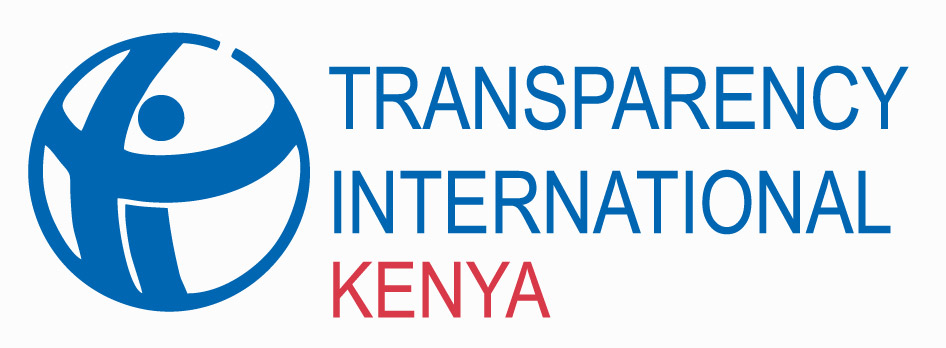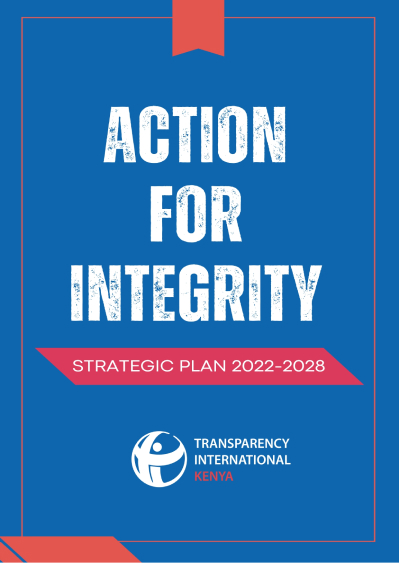As the Constitution of Kenya marks 13 years since its promulgation on 27th August 2010, this year also marks the 20th anniversary of the adoption and enactment of many anti-corruption legal instruments including, the United Nations Convention against Corruption, the African Union Convention on Preventing and Combating Corruption and the premier law on anti-corruption in Kenya, the Anti-Corruption and Economic Crimes Act 2003. The premier anti-corruption agency then referred to as the Kenya Anti-Corruption Commission was also established in 2003 and transitioned into the Ethics and Anti-Corruption Commission established under the 2010 Constitution. Despite such a progressive anti-corruption legislative framework in Katiba 2010 supportive legal instruments, Kenya is yet to witness substantive and genuine efforts to curb corruption.
First, there have been numerous attempts to undermine and slow down the progress that has been made to strengthen the fight against corruption. Proposed amendments to sections 45(2) (b) and (c) of ACECA that specifically address offences related to non-compliance with procurement guidelines and the implementation of unplanned projects is one such attempt at eroding the gains made. According to EACC, procurement-related graft cases have been among the most litigated provisions in anti-corruption offences and any attempts at amending these provisions would result in weakening enforcement mechanisms that have been used successfully to prosecute corrupt public officials.
Another attempt at weakening anti-corruption laws is the proposed Amendment to the Anti-Corruption and Economic Crimes Act, 2003 to delete Section 64 of the Act providing for the disqualification of persons convicted of corruption or economic crimes from being elected or appointed as public officers. This amendment offends the national values and principles of governance espoused under the Constitution as well as Chapter Six on Leadership and Integrity. This proposed amendment is inconsistent with the Constitution of Kenya and offends several constitutional provisions on the National Values and Principles of Governance Principles of Leadership and Integrity, and requirements on qualifications for election as a Member of Parliament and county assembly respectively among many other provisions in law that would be inconsistent with the proposed amendment.
These attempts seek to create legal loopholes that could potentially shield individuals accused of corruption or violating the principles of integrity from facing the consequences of their actions. Such actions are a clear departure from the fundamental principles that the Constitution seeks to promote. Amending laws to protect individuals accused of corruption or ethical breaches erodes public trust in the government and its commitment to fighting corruption. It sends a message that those in power can manipulate the legal system to evade accountability, thereby creating a culture of impunity that undermines the rule of law.
Any attempt to dilute or circumvent measures designed to hold corrupt individuals accountable undermines the efforts of oversight and enforcement institutions such as the Office of the Auditor General, the Ethics and Anti-Corruption Commission (EACC), the National Police Service, Asset Recovery Agency, the Director of Public Prosecutions and the Judiciary among many other institutions promoting the rule of law. Non-state actors including the media, Civil Society Organizations, Religious groups and the private sector have also been making significant contributions towards the progress made in combating this societal menace.
Kenya is a signatory to various international conventions that emphasize the importance of combating corruption and promoting good governance. The United Nations Convention Against Corruption encourages states to consider implementing measures relating to the disqualification or removal of individuals convicted of corruption from public office. The African Union Convention on Preventing and Combating Corruption also requires state parties to adopt measures to hold individuals holding public office to be accountable for corruption offences, including requiring states to establish and promote the use of codes of conduct for public officials and promote ethics. Amending laws to protect corrupt individuals not only contradicts these commitments but also damages Kenya’s reputation on the global stage.
Kenya’s Constitution, with its emphasis on leadership integrity, accountability, and transparency, is a beacon of hope for a nation seeking to achieve equitable and sustainable development. Any attempt to dilute or amend laws that protect individuals accused of corruption or ethical breaches jeopardizes the progress made and undermines the foundational principles that underpin Kenya’s democratic governance.
It is essential for the government, civil society, and citizens to remain vigilant and hold those in power accountable for their actions. Safeguarding the integrity of Kenya’s institutions and ensuring the enforcement of Chapter Six among other Constitutional provisions is not just a legal obligation, it is a moral imperative that will determine the future prosperity and progress of the nation. To protect Kenya’s integrity, we must stand united against attempts to undermine the very foundations of our constitutional democracy.
By Titus Gitonga, Programme Coordinator, Transparency International Kenya (TI-Kenya)

